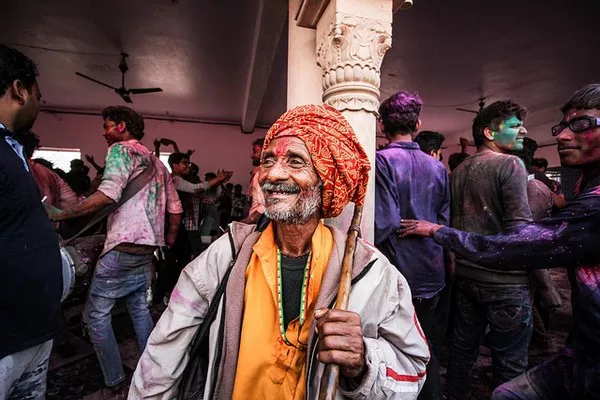Presidents Day, celebrated on the third Monday of February, presents a unique challenge in this evolving landscape. While officially recognized as a federal holiday, the complexities of its origins, its portrayal of history, and its evolving cultural relevance necessitate a nuanced understanding of its place in 2024 and beyond.
The Roots of a Contested Celebration:
Presidents Day’s history is intertwined with the commemoration of George Washington’s birthday, originally celebrated on February 22nd. Over time, it evolved to encompass the birthday of Abraham Lincoln, celebrated on February 12th. In 1968, with the implementation of the Uniform Monday Holiday Act, the holiday was shifted to the third Monday of February, becoming simply “Presidents Day.” This shift, intended to create more three-day weekends, effectively obscured the specific commemorations of Washington and Lincoln.
The intent behind this amalgamation was arguably well-meaning, recognizing the contributions of multiple presidents. However, it also led to a homogenization of history, obscuring the distinct legacies and complexities of each individual. The celebration of Presidents Day without specific recognition of Washington and Lincoln leaves room for misinterpretations and a diluted understanding of the pivotal figures they represent.
The Lens of Indigenous History:
For Native Americans, Presidents Day presents a particularly complex and often uncomfortable narrative. The legacy of both Washington and Lincoln, while undeniably significant in American history, is deeply intertwined with the displacement and subjugation of Indigenous peoples. Washington, as the first president of the United States, presided over the expansion of the nation, a process that often involved the forced removal and displacement of Native American tribes from their ancestral lands.
Lincoln, while issuing the Emancipation Proclamation that freed enslaved African Americans, also oversaw policies that resulted in the displacement of Native Americans through forced marches and the confiscation of their lands. The iconic image of Lincoln as the “Great Emancipator” often overshadows the realities of his Indian policies, such as the passage of the Homestead Act, which further facilitated the encroachment on Indigenous territories.
While acknowledging the complexities of both Washington and Lincoln’s legacies, it’s important to remember that their actions had a devastating impact on Indigenous communities. The very land on which the United States was founded was stolen from its original inhabitants, and the expansion of the nation often came at the expense of Native American sovereignty and cultural survival.
Beyond the Official Recognition:
The official designation of Presidents Day as a federal holiday, however, does not erase the uncomfortable truths of its history. It’s crucial to recognize that while the holiday might commemorate the contributions of these presidents, it doesn’t fully address the complex and often painful realities of their impact on Indigenous communities.
The commemoration of Presidents Day, therefore, presents an opportunity for reflection and critical engagement with history. It is a time to acknowledge the full scope of the past, including the struggles and injustices faced by Indigenous peoples, alongside the achievements of past leaders.
Reclaiming the Narrative:
In the context of contemporary American society, the celebration of Presidents Day necessitates a shift towards a more inclusive and nuanced understanding of its history. It is not simply about commemorating the past but about engaging with its complexities and learning from it.
For Native Americans, this means reclaiming our narratives and ensuring that our voices are heard in the broader discussion of American history. It means challenging the dominant narrative that often celebrates the achievements of presidents without acknowledging the impact of their actions on Indigenous peoples.
Moving Forward:
The way forward lies in fostering a more inclusive and informed understanding of history. This involves not only acknowledging the contributions of past presidents but also recognizing the full breadth of their impact on all Americans, including Indigenous peoples.
Here are some ways we can approach Presidents Day in a more culturally sensitive manner:
Acknowledge the Complexities: Recognize the multifaceted nature of the presidents being commemorated, highlighting both their achievements and the consequences of their actions, particularly in relation to Indigenous communities.
Promote Indigenous Voices: Amplify Indigenous narratives and perspectives on history, ensuring that their voices are heard alongside those of other groups.
Engage in Critical Dialogue: Encourage discussions and educational initiatives that challenge dominant historical narratives and foster understanding of the complex relationship between Indigenous peoples and the United States government.
Recognize the Ongoing Impact: Connect the historical injustices faced by Indigenous peoples to contemporary issues such as land rights, sovereignty, and cultural preservation.
Celebrate Indigenous Culture: Use Presidents Day as an opportunity to celebrate Indigenous cultures and contributions to American society.
See also:Is Valentine’s Day an American Holiday?
A Path Towards Reconciliation:
Ultimately, the celebration of Presidents Day should be a catalyst for reflection and progress. It should prompt us to engage with the past in a way that acknowledges the struggles and triumphs of all Americans, including Indigenous peoples.
By embracing a more nuanced and inclusive understanding of history, we can create a path towards reconciliation and build a more just and equitable society for all. This requires a willingness to challenge existing narratives, listen to marginalized voices, and work towards a shared future where the complexities of the past are acknowledged and honored.

